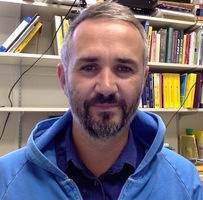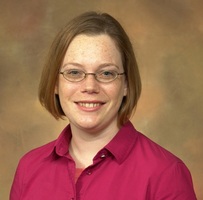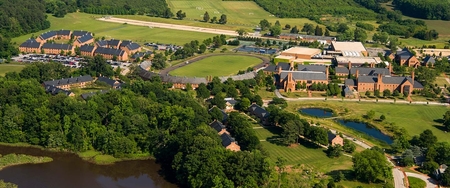
|
The Mathematical Association of America Maryland-District of Columbia-Virginia Section |
- Home
- History
- Main History Page
- Section History Document
- List of Past Officers
- Charter Members
- African-American Participation
- Stories from Section Members
- Section NExT Fellows
- Obituaries
- Smith Award Recipients
- Christensen Award Recipients
- Meritorious Service Award Recipients
- Undergraduate Award Winners
- Meeting Archive
- Past Meetings
- Talk Archive
- Old Section NExT Programs
- Newsletter Archive
- Meeting Minutes Archive
- Miscellaneous Documents
- Meetings
- Minutes
- Fall 2024 Executive
- Fall 2024 Membership
- Spring 2024 Executive
- Spring 2024 Membership
- Fall 2023 Executive
- Fall 2023 Membership
- Spring 2023 Executive
- Spring 2023 Membership
- Fall 2022 Executive
- Fall 2022 Membership
- Spring 2022 Executive
- Spring 2022 Membership
- Fall 2021 Executive
- Fall 2021 Membership
- Spring 2021 Executive
- Spring 2021 Membership
- Fall 2020 Executive
- Fall 2020 Membership
- Fall 2019 Executive
- Fall 2019 Membership
- Spring 2019 Executive
- Spring 2019 Membership
- Fall 2018 Executive
- Fall 2018 Membership
- Spring 2018 Executive
- Spring 2018 Membership
- Fall 2017 Executive
- Fall 2017 Membership
- Spring 2017 Executive
- Spring 2017 Membership
- Minutes Archive
- Newsletters
- Section NExT
- Awards
- Students
- Links
- Search
Fall 2015 Meeting at St. Mary's College of Maryland

Edwin O'SheaJames Madison UniversityFriday workshop: Euclid's Elements Across the Modern Curriculum Abstract:
Euclid's Elements is the foundational text of our discipline. Until recently, it was considered part of the bedrock of every liberal arts education worth its salt. Many commentators claim Elements' influence on western thought is second only to the Bible. Like the Bible, it may be that famous text that you know but have not read! Biographical Sketch: Edwin O'Shea is an associate professor at James Madison University. Before coming to Virginia he held positions in Kentucky, Mexico, and Ireland. His research is in combinatorics with related interests in the areas of number theory and geometry. Edwin has mentored a number of undergraduate summer research projects and senior theses in these areas. He takes particular pride in teaching courses designed for liberal arts majors and future teachers of high school mathematics. Most of his free time is spent baking deserts, reading for pleasure, and hanging out with his young family and close friends. -->
Robert (Bob) BoschOberlin CollegeBanquet Address:Opt Art Abstract: Optimization is concerned with optimal performance—finding the best way to complete a task. It has been put to good use in a great number of diverse disciplines: advertising, agriculture, biology, business, economics, engineering, manufacturing, medicine, telecommunications, and transportation (to name but a few). In this lecture, we will showcase its amazing utility by demonstrating its applicability in the area of visual art, which at first glance would seem to have no use for it whatsoever! We will begin by describing how to use integer programming to construct a portrait out of complete sets of double nine dominoes. We will then describe how high quality solutions to certain large-scale traveling salesman problems can lead to beautiful continuous line drawings. We will conclude by presenting other examples of Opt Art—art constructed with the assistance of optimization techniques. Biographical Sketch: Robert (Bob) Bosch is Professor of Mathematics at Oberlin College. He specializes in optimization, the branch of mathematics concerned with optimal performance. Since 2001, Bosch has devoted increasing amounts of time and effort into devising and refining methods for using optimization to create pictures, portraits, and sculpture. He has had pieces commissioned by Colorado College, Western Washington University, Occidental College, Spelman College, and the organizing committees of several academic conferences. He operates a website, www.dominoartwork.com, from which it is possible to download free plans for several of his domino mosaics (including a 44-set portrait of President Barack Obama). His sculpture Embrace was awarded first prize at the 2010 Mathematical Art Exhibition in San Francisco. 
Talitha WashingtonHoward UniversitySaturday Morning Address:The Ubiquity of Mathematical Biology Abstract: What comes to mind when you hear the phrase “mathematical biology”? Perhaps you begin to think of biological processes and mathematical equations. Perhaps you think of differential equations and exponential growth of bacteria. Perhaps even you think of modeling cancer growth in animals. In this talk, we will take a tour of the concept of “mathematical biology”. Biographical Sketch: Talitha Washington is an Associate Professor of Mathematics at Howard University. She has been an Assistant Professor of Mathematics at the University of Evansville and The College of New Rochelle, and a VIGRE Research Associate in the Department of Mathematics at Duke University. She earned her master's and doctoral degrees in mathematics from the University of Connecticut, and completed her undergraduate studies in mathematics at Spelman College. She is interested in the applications of differential equations to problems in biology and engineering. She serves on the Executive Committee of the Association for Women in Mathematics (AWM) and the Board of Advisors for the National Institute for Mathematics and Biological Synthesis (NIMBioS). 
Heidi HulsizerHampden-Sydney CollegeSaturday Afternoon Address:A 'Mod'ern Mathematical Adventure in Call of Duty: Black Ops Abstract: Call of Duty: Black Ops is a popular video game that was released in 2010. Interestingly, one can use mathematics to solve an interesting problem that appears in the game. The problem involves turning dials to reach a desired solution, however when a player turns one dial he simultaneously turns others in a special configuration. Two perspectives on the solution will be presented; one involves solving a system of equations modulo ten and the other involves converting a directed graph with four vertices into a matrix equation. This example provides an affirmative answer to the question: “Will I ever use math in real life?” This talk will be accessible to undergraduates. Biographical Sketch: Heidi Hulsizer is an assistant professor at Hampden-Sydney College and she has been teaching there since 2010. She received her B.A. from Drury University and her M.A. and Ph.D. from the University of Missouri. She recently received the Trevor Evans award from the MAA. for her article “A ‘Mod’ern Mathematical Adventure in Call of Duty: Black Ops” which appeared in Math Horizons. She was a Project NExT fellow (blue10!). Her research interests are in commutative algebra, the scholarship of teaching and learning, and statistics education. In her free time she enjoys walking her dog, gardening, and finding mathematics in unusual places. --> |
Copyright © 2015 - The Mathematical Association of America
Please send comments, suggestions, or corrections for this page to Brian Heinold at heinold@msmary.edu
Last Modified: 11/09/2015 - 09:29pm
 The Fall 2015 Meeting of the MD-DC-VA section of the MAA
was held at
The Fall 2015 Meeting of the MD-DC-VA section of the MAA
was held at